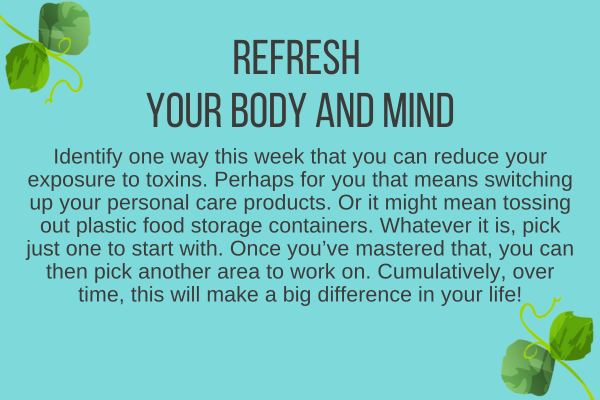Every second, 683 pounds of toxic chemicals are being dumped into our environment by industrial facilities worldwide. To put that in perspective, it’s roughly the weight of a grand piano—and it’s growing larger each year.
This army of invisible pollutants is invading our lives from air, land, and water, now contributing to a staggering 10 million pounds of toxic waste annually—two million of which are known carcinogens. Yikes!
Constant exposure to environmental toxins through inhalation, ingestion, and skin contact leads to bioaccumulation in body tissues, which can cause serious damage to your health. These toxins are linked to many common diseases, including heart disease, diabetes, cancer, and dementia. The insidious nature of these health effects lies in their gradual onset. This makes it difficult to pinpoint a single cause. Often, it’s the cumulative effect of years of exposure that leads to disease. Young children, pregnant women, and their unborn babies are particularly vulnerable, with exposure leading to all kinds of health problems.
Environmental toxins can wreak havoc on your health through several damaging mechanisms. They cause cellular damage by attacking DNA, proteins, and cell membranes, leading to tissue and organ damage. Toxins also generate free radicals, triggering oxidative stress, chronic inflammation, and accelerated aging, which increase disease risk.
Here are few examples of how toxins can lead to health issues:
Increased Cancer Risk: Carcinogens like asbestos, benzene, and certain heavy metals cause DNA mutations leading to uncontrolled cell growth. Pesticides and industrial chemicals increase the risk of cancers like breast cancer, leukemia, and liver cancer.
Hormonal Disruption: Endocrine-disrupting chemicals (EDCs) interfere with hormonal functions, leading to reproductive issues, metabolic disorders, immune deficiencies, and hormone-dependent tumors. These chemicals mimic, enhance, disable, or alter hormonal signals, causing significant health problems.
Metabolic and Autoimmune Conditions: Toxins can trigger immune responses, leading to inflammation and autoimmunity. Conditions like rheumatoid arthritis, lupus, and multiple sclerosis are associated with exposure to heavy metals, solvents, and pollutants.
Neurological Conditions: Toxins affect the nervous system, causing developmental delays, cognitive impairment, ADHD, and autism spectrum disorders. Heavy metals like lead and mercury impair memory, attention, and language skills, contributing to mental health issues later in life.
Imagine your body is like a bucket, and all the toxins you’re exposed to (this is called “toxic load”) are like water being poured into that bucket.
There are many types of toxins we encounter in our everyday lives that can come from all sorts of places:
- The air you breathe (pollution, smoke)
- The food you eat (pesticides, additives)
- The products you use (cleaning supplies, cosmetics)
- Even stress can be considered a kind of toxin
Now, your body has natural ways of dealing with these toxins—think of it like having a small drain at the bottom of your bucket. Your liver, kidneys, and other organs work to filter out and get rid of harmful substances.
But here’s the thing: If too much is being poured in too quickly, your bucket starts to fill up faster than it can drain. This is what we call “toxic overload.”
When your toxic load gets too high, it’s like your bucket overflows. This is when you might start to feel unwell or experience various health issues. Your body is essentially saying, “Whoa, there’s too much here for me to handle all at once!”
The key is to try to reduce the amount of toxins coming in—by making healthier choices in what you eat and what products you use—and to support your body’s natural detoxification processes through exercise, good sleep, and staying hydrated.
Here are a few ways to reduce your exposure:
- Choose fresh, organic produce when possible, and unprocessed foods over canned, packaged, and processed foods that may contain preservatives, additive and dyes.
- Re-evaluate your personal care products. Here is a line that I recommend that is free of over 2500 contaminants and toxins found in other skin care lines.
- Use glass, stainless steel, or ceramic containers instead of plastic for food storage.
- Toss out your Teflon, aluminum, copper, or any pans that are peeling at the bottom. Instead, use ceramic-coated, stainless steel, or cast iron pans. My favorite brand is Caraway.
- Switch out your kitchen, laundry and bathroom cleaners for green cleaners. Here is the line I use that is non-toxic, biodegradable and environmentally friendly – healthy for you, your wallet and the planet.


